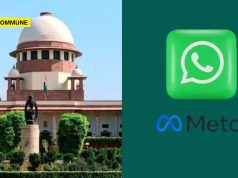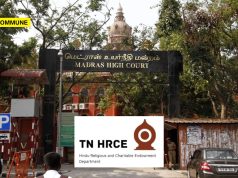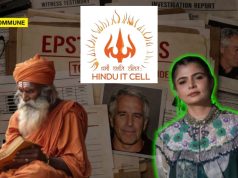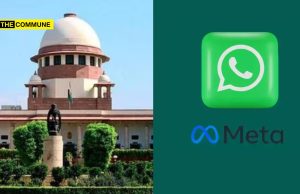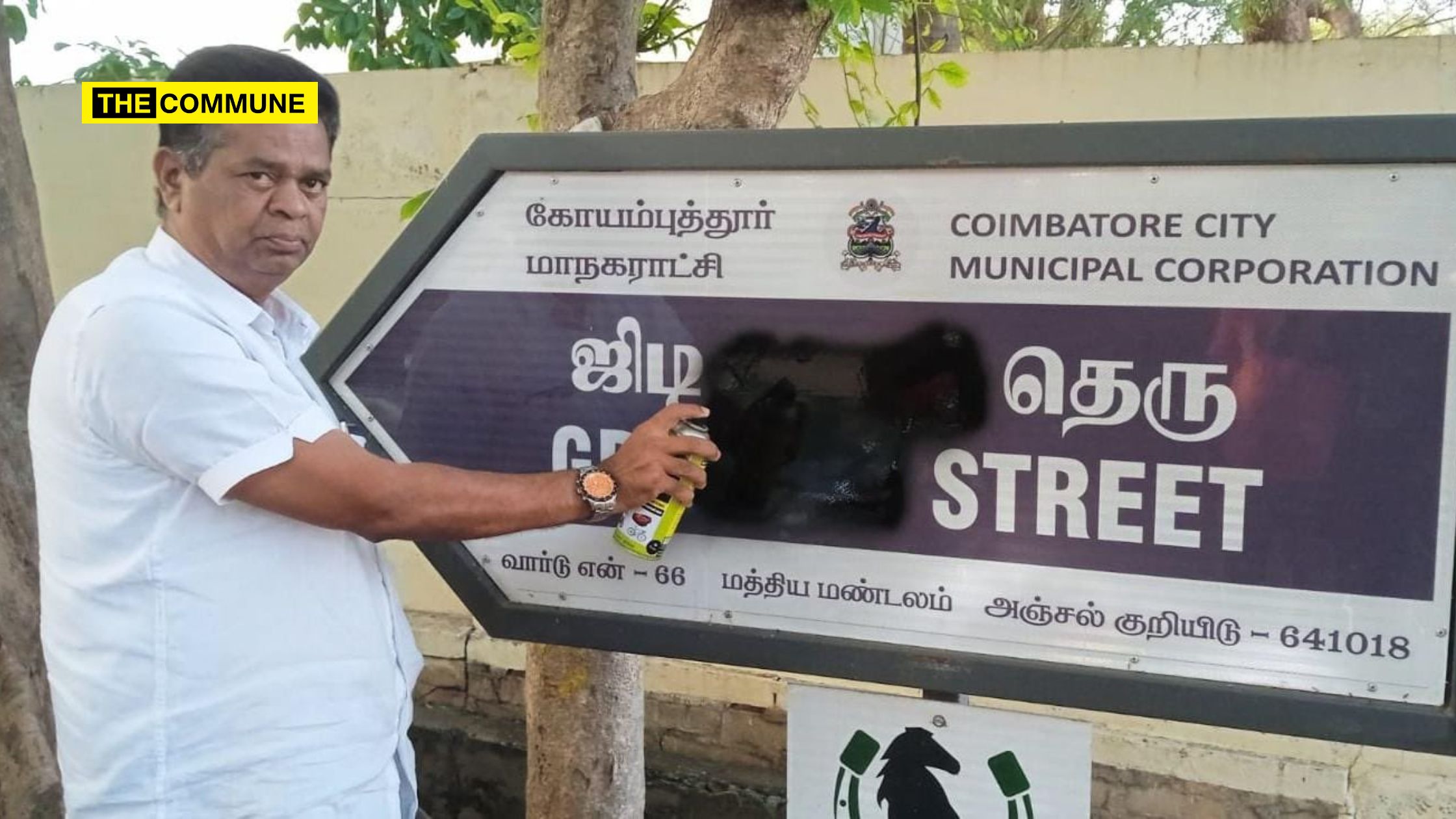
DMK functionary Raghunandan/Raghunath has allegedly attempted to obscure the legacy of the renowned scientist G.D. Naidu, a key figure from Coimbatore’s industrial revolution. The act involved the defacement of the signboard bearing the name “G.D. Naidu Street,” raising questions about the motivations behind such an action.
Raghunandan hails from Race Course area of Coimbatore. A DMK figure, he is also said to be producing a few films under the name ‘Race Course’ Raghunath. A street in the 66th ward under the central zone of the Coimbatore Corporation has been named after G.D. Naidu. Raghunandan blackened the street sign board that was put up by the Corporation alleging that it has a caste name and is against the principle of social justice.
The incident has been condemned by the BJP as an insult to the famed scientist and inventor from the Coimbatore region.
Former Coimbatore BJP President Balaji Uttama Ramasamy said, “As a way of slandering the talented Coimbatore-based scientist GD Naidu, one of the scientific giants of Tamil Nadu, DMK functionary Raghunandan has tarnished the nameboard of GD Naidu erected in his memory on behalf of the government. The road named after him has been painted with black ink. This action is strongly condemned. What is the situation of the people because of this DMK government if this is the situation for the scientist who made Coimbatore proud? “We strongly condemn him and he should be arrested immediately,” he said.
தமிழகம் தந்த அறிவியல் மாமேதைகள் ஒருவரான நமது கோவை பகுதியைச் சார்ந்த மதிப்பிற்குரிய திரு ஜி டி நாயுடு அவர்களின் திறமையான ஆற்றலுக்கு இலக்கு ஏற்படும் விதமாக திமுகவை சேர்ந்த நிர்வாகி ரகுநந்தன் என்பவர் மதிப்பிற்குரிய திரு ஜிடி நாயுடு அவர்களின் பெயருக்கு களங்கம் விளைவிக்கும் விதமாக1/3 pic.twitter.com/DHugI4xOIk
— Balaji Uthamaramasamy (@balaji_utham) January 13, 2024
The Vice President of Tamil Nadu BJP Industrial cell Selva Kumar has taken to Twitter to condemn the alleged attempt by the DMK to suppress the fame of G.D. Naidu. The party strongly denounced the act of blackening the signboard and demands that the MSME Tooling Centre, a project of the Central Government set to be built in Coimbatore at a cost of ₹200 crore, be named after the scientific genius, G.D. Naidu. This incident has sparked a political outcry, raising concerns about the preservation of historical and scientific legacies in the face of potential partisan motivations.
கோவையின் தொழில்புரட்சிக்கு வித்திட்ட மிகச்சிறந்த அறிவியல் மேதை உயர்திரு ஜிடி.நாயுடு அவர்களின் புகழை மறைக்க திமுக முயற்சி செய்கிறது.
திமுக நிர்வாகி ரகுநந்தன் என்பவர் ஜிடி.நாயுடு தெரு என்று இருந்த பெயர் பலகையில் கருப்பு மை அடித்துள்ளார்.
இதை பாஜக வன்மையாக கண்டிக்கிறது, மேலும் -… pic.twitter.com/NtnZPeuLes
— Selva Kumar (@Selvakumar_IN) January 14, 2024
Explaining this, Racecourse Raghunath said, “There is an ordinance that there should be no streets with caste names. The old name of that street was GT. Only now is the word Naidu was added. I deleted that word just so that there should be equality everywhere. I saw the comments of the BJP. That is their opinion. I have not done anything wrong, I have done this in accordance with justice,” he said.
Gopalaswamy Doraiswamy Naidu, better known as G.D. Naidu, was born in 1893 in Coimbatore, India, and is celebrated as the ‘Edison of India’ for his groundbreaking contributions to mechanics, electrical engineering, and agriculture.
Naidu’s foray into entrepreneurship began with the establishment of his transportation business. Armed with extensive knowledge and acute observation skills, he could identify mechanical issues in his buses merely by the sound of the running engine. What started with a single bus in 1921 quickly expanded into the United Motor Services (UMS), boasting a fleet of 280 buses. In 1937, Naidu achieved the historic feat of manufacturing India’s first electric motor, showcasing his bold approach to experimentation and unconventional problem-solving.
One notable example of Naidu’s inventive spirit was the creation of the electric razor, Rasant. While abroad, he modified a play car’s motor, inserting a blade through trial and error to invent the electric razor. His list of inventions included a distance adjuster for film cameras, a tamper-proof vote recording machine, and a fruit juice extractor, among others. In 1941, at a time when radios were a luxury priced at Rs 175, Naidu declared his ability to produce five-valve radio sets in India for just Rs 70. In 1952, his company introduced a two-seater petrol engine car priced at a mere Rs 2,000, although production ceased due to government indifference and refusal to grant necessary licenses.
Beyond his entrepreneurial and inventive achievements, G.D. Naidu played a crucial role in establishing India’s first polytechnic college, the Arthur Hope Polytechnic, and the Arthur Hope College of Engineering. Although the government later assumed control, the institution now stands as the Government College of Technology (GCT). G.D. Naidu passed away in 1974, leaving behind a legacy of innovation and educational contributions.
Subscribe to our channels on Telegram, WhatsApp, and Instagram and get the best stories of the day delivered to you personally.

